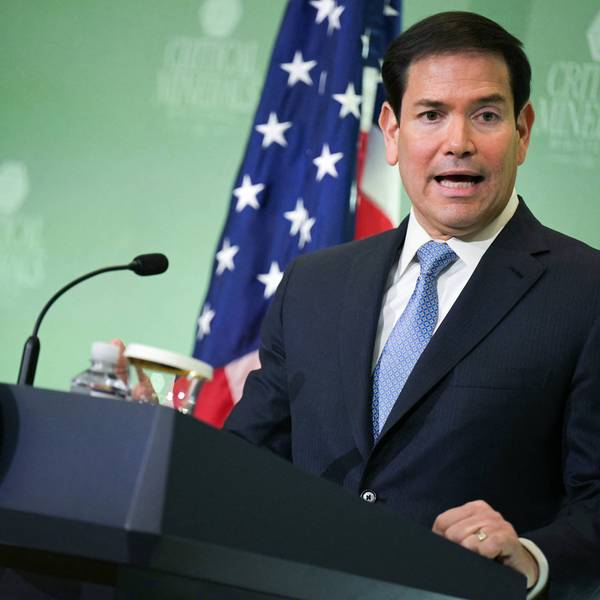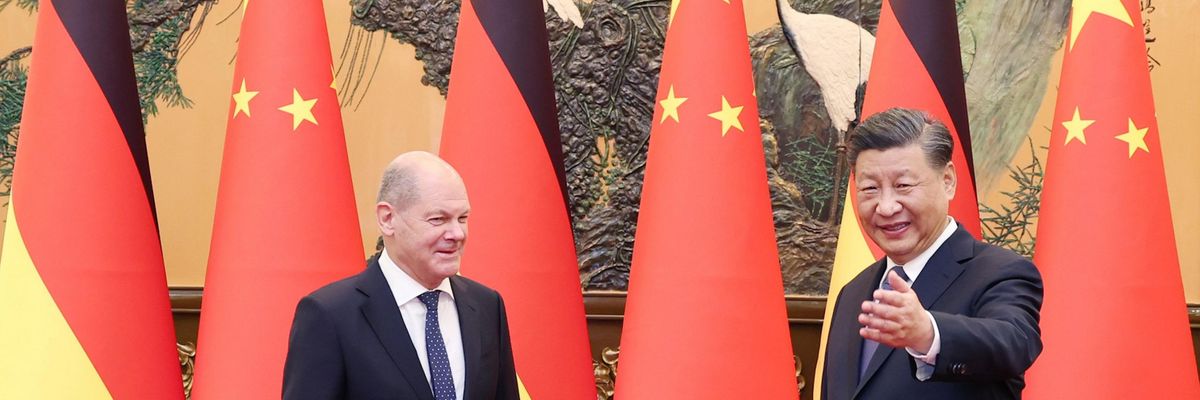Chinese President Xi Jinping and German Chancellor Olaf Scholz on Friday condemned Russian President Vladimir Putin's previous threats to use nuclear weapons in Ukraine as "irresponsible and dangerous," while calling on the international community to work together to prevent nuclear war.
Chinese and international media report Xi said during an official state visit by Scholz to Beijing that both leaders "jointly oppose the use or threat of use of nuclear weapons."
Xi also asked Germany and all of Europe to "play an important part in calling for peace and facilitating negotiations" to end the 254-day Russian invasion of Ukraine.
Notably, the Chinese leader--who recently secured a third term in power and who once called Putin his "best friend"--did not say Russia should withdraw from Ukraine.
Scholz, meanwhile, said Russia risks "crossing a line" if it uses nuclear weapons--something Putin recently said he has ruled out after warning for months that his country reserved the right to wage nuclear war if its "territorial integrity" is threatened.
Disarmament campaigners welcomed the leaders' remarks. Beatrice Fihn, executive director of the International Campaign to Abolish Nuclear Weapons, noted in a statement that "by calling on all countries to oppose the use of and threats to use nuclear weapons, President Xi is endorsing key parts of the Treaty on the Prohibition of Nuclear Weapons," a pact ratified by scores of nations--but none of the world's nine nuclear powers, including China.
Yu Jie, a senior China research fellow at Chatham House in London, told the Financial Times that Xi's declaration was unsurprising.
"It is in line with China's long-term nuclear and disarmament policies," she explained. "If there is one thing to make Xi change his stance on Russia's invasion of Ukraine, it would be the looming potential of deploying nuclear weapons from Moscow."




